

TIANJIN, Aug. 19 (Xinhua) -- It is impossible for nerve gas to be present after blasts at the port of Tianjin, specialists from the rescue team said on Wednesday.
"A lot of people are worried about the threat of dangerous chemicals which were stored in the warehouse," said Wang Yongan, a research fellow with the Academy of Military Medical Sciences (AMMS). "Information should be truthful and figures accurate, so that the ordinary people should not be misled and panic."
Some Chinese media reported nerve gas was detected at the blast site in Tianjin. Wang, however, said producing the gas required a complex process.
"The chemicals found at the site and the conditions wouldn't allow generation of nerve gas," he said.
Wang believed the belief was derived from misinterpretation of an experiment.
Nerve gas refers to the chemicals that disrupt the mechanism by which nerves transfer messages to organs. It is many times more toxic than cyanide.
Nie Zhiyong, a research fellow with the Institute of Pharmacology and Toxicology of AMMS, said that so far no nerve gas poisoning cases were reported.
According to Bao Jingling, chief engineer of Tianjin's bureau of environmental protection, at a press conference Wednesday morning, none of the 18 air quality monitoring spots reported excessive cyanide on Tuesday, while water tested at eight of the 40 monitoring stations exceeded safety standards for cyanide.
Pictures circulating on the Internet show white foam on the ground after it rained on Tuesday. Bao told reporters that they collected samples of water and soil from the reported location, but found no excessive cyanide.
"The injured people in the hospital were mostly wounded in the blasts, and we haven't received any chemical toxic reports," he said, adding that the environmental authorities are closely monitoring the site.
As of 9 a.m. Wednesday, identities of 101 of the 114 people died in the blasts have been confirmed, including 53 firemen and seven police officers. A total of 65 are still unaccounted for, including 49 firefighters and four policemen, said Gong Jiansheng of Tianjin's publicity department.
In hospitals, 677 are still receiving medical treatment, among whom 56 are in critical or serious condition.
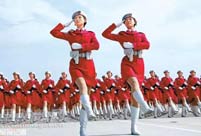 In pics: album of PLA grand military parades
In pics: album of PLA grand military parades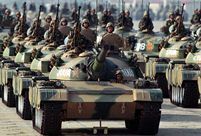 Chinese tanks in National Day Parade
Chinese tanks in National Day Parade In pics: shocking aftermath of Tianjin blasts
In pics: shocking aftermath of Tianjin blasts
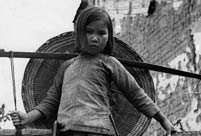 Indomitable Chinese people during WWII
Indomitable Chinese people during WWII
 Awesome Chinese missiles
Awesome Chinese missiles Amazing photos of Chinese Air Force in parade
Amazing photos of Chinese Air Force in parade Chinese tanks in National Day Parade
Chinese tanks in National Day Parade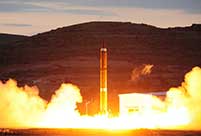 Striking moments when strategic missiles are launched
Striking moments when strategic missiles are launched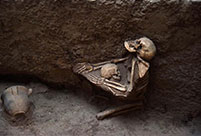 Shocking scenes found in 4000-year-old earthquake relic
Shocking scenes found in 4000-year-old earthquake relic Tianjin explosion: Latest updates
Tianjin explosion: Latest updates US intrudes on China’s anti-graft drive
US intrudes on China’s anti-graft drive Bangkok explosion: Latest updates
Bangkok explosion: Latest updates Expats hope Chinese authorities make it easier for them to observe legal procedures
Expats hope Chinese authorities make it easier for them to observe legal proceduresDay|Week